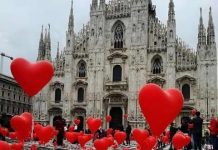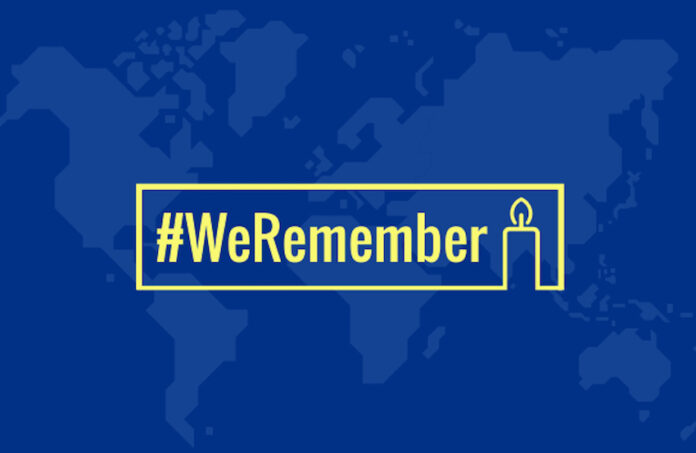“Never Again”
Edited by Anna Popper
By decision of the UN General Assembly, 27 January was designated International Holocaust Remembrance Day, commemorating the anniversary of the liberation of Auschwitz-Birkenau, the former German Nazi concentration and extermination camp in 1945. Remembering the 6 million Jews murdered by the Nazis and their collaborators, all victims of Nazi persecution and victims of subsequent genocides. It is our responsibility and that of the world to keep the memory alive.

On the occasion of this historical event, the Embassy of the Federal Republic of Germany and the Embassy of the State of Israel held an emotional evening of reflection and remembrance with a screening of the Hungarian-German co-production movie “The Evolution” at the Goldmark Hall, located in the Jewish Quarter in Budapest, near to the Grand Synagogue on Dohány Street.


Ambassadors, diplomats, Hungarian Holocaust survivors and members of the Jewish community, including Mr András Heisler, President of MAZSHISZ (Federation of Hungarian Jewish Communities), and school students attended the annual commemoration in large numbers, which started with the address of H.E. Mrs Julia Gross, Ambassador of the Federal Republic of Germany to Hungary:

“On 27 January 2023 we marked 78 years since the liberation of the Auschwitz-Birkenau death camp. I am very grateful that you all accepted our invitation to honour and remember the victims and survivors of the Holocaust with us here in the Goldmark Hall.
Today we commemorate the 6 million murdered Jewish men, women and children. We also remember the Roma and Sinti, homosexuals and all the others who were targeted by the Nazi regime.
I am particularly honoured and touched to be in the presence of Holocaust survivors and also their descendants.
For a German Ambassador, representing the land of the perpetrators, meeting Holocaust survivors and participating in events like today’s belong to the most important, both challenging and rewarding tasks of the diplomat’s profession.
But more than that, they are always a very personal experience as well: having attended many Holocaust Remembrance events in Germany and in the countries where I have served, for me each of these occasions is a strong mix of emotions and thoughts: horror and shame because of the unspeakable crimes committed by Germans, a strong obligation to keep the memory of the Holocaust alive and an intense gratitude that today Germans can commemorate together with the victims and descendants of the victims.
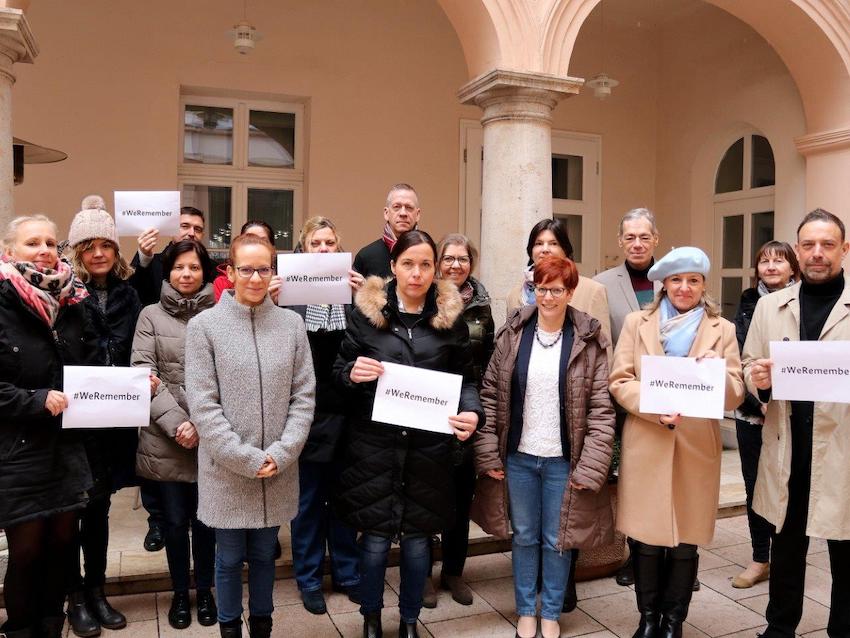

90 years and 3 days ago (30 January 1933) Hitler came to power. Terror and persecution began immediately and led to Germany’s war of extermination, the destruction of large parts of Europe and to the Holocaust. The systematic persecution and murder of Jews in Europe is the darkest chapter in the history of our country.
Holocaust survivors all over the world have shown incredible courage, dignity and resilience over the past decades by raising their voices to tell the truth about the Holocaust and keep the remembrance alive. They also helped to give us the names and faces and stories of those who perished. In the future we will have to continue their work to find ways to keep their testimonial alive and present. So that the victims and the survivors are never forgotten. And also to ensure that future generations understand who the perpetrators were, what led to the Holocaust, and that we all, everywhere, have a moral obligation never to let it happen again.
Whoever hears the witnesses can only imagine the suffering they went through. Survivors lost their families and homeland, were deprived of their heritage and their future. They had to carry the traumatic experiences with them for a lifetime. These experiences still cause pain several generations later in the families of the survivors and the perished.
The film “Evolution” we are about to watch together addresses these transgenerational traumas. And so does the short lecture that will be given to us after the film by psychologist Ágnes Györfy on Transgenerational Trauma Transmission. The film that we are going to see tells the story of a woman called Éva, whose parents were deported from Hungary and who was born in Auschwitz. Éva, her daughter Léna and her grandson Jonás now live together in Berlin. The film’s director Kornél Mundruczó and his partner Kata Wéber, who wrote the screenplay, were inspired by their personal experiences – her mother’s life in Budapest from 1945 and her and their friends’ experiences when moving to Berlin.

I am very happy that 25 students are joining us to watch the film today – students from the German, Austrian, Jewish schools in Budapest and from the Milestone Institute. In a week’s time they will meet again to discuss this film, to learn more about the Holocaust and to connect with each other. Thank you very much Háver Foundation for your support in organizing that workshop next week. Projects like these, involving young people from Jewish and non-Jewish backgrounds, are crucial for us to understand what happened and why, what the danger signs of anti-Semitism and racism are, and how to stop them from rising again.
‘Never again!’ – this principle remains at the heart of our national German identity. We are committed to filling the pledge ‘never again!’ with life, today and in the future. (‘Never again’ is a meaningful slogan associated with the lessons of the Holocaust. The phrase may originate from the epic poem by Yitzak Lamdan, written in 1927 /about the siege of the Masada fortress by the Romans in 72-73 CE/ that stated ‘Never again shall Masada fall!’)
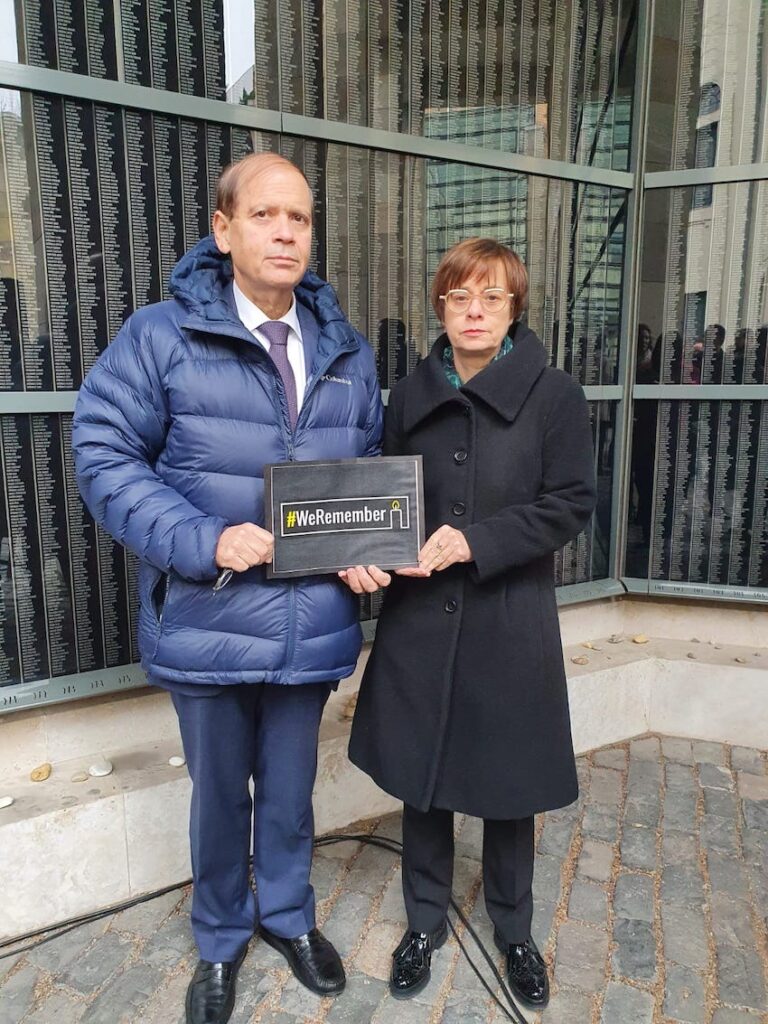
Today, Jewish life is blossoming again in Germany, the Jewish community is an integral part of our society and we are grateful for that. In 2022 we celebrated 1700 years of Jewish life in Germany with events, exhibitions and projects. But at the same time, anti-Semitism remains a danger, anti-Semitic rhetoric has become more blatant and open again in recent years on the streets, in schoolyards and, above all, online. Anti-Semitic incidents and acts of violence are again increasing, in Germany and elsewhere.
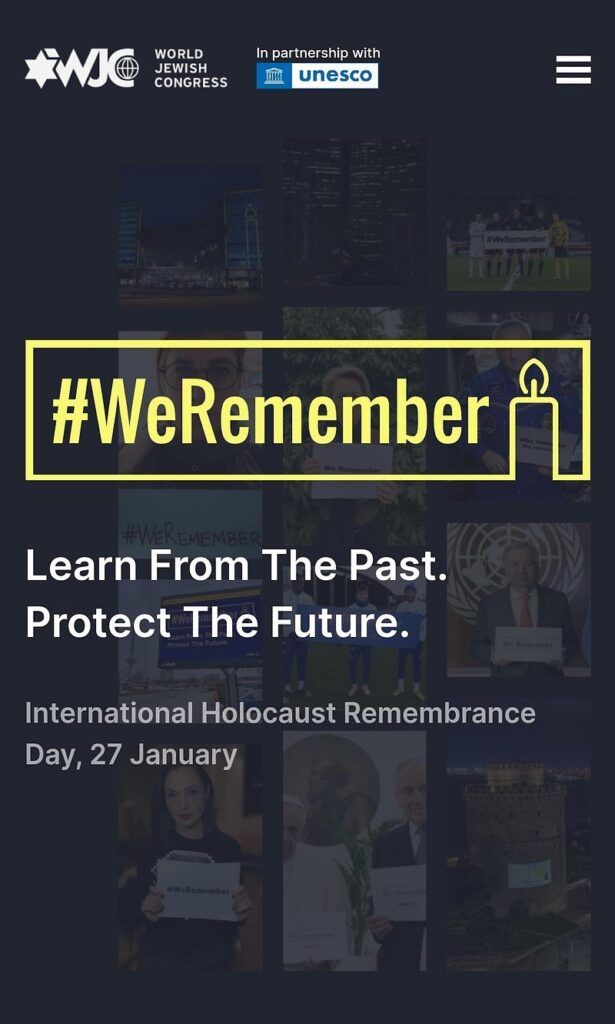
It is our responsibility to step up the fight against anti-Semitism and Holocaust distortions at home and abroad. The German government is determined to continue fighting anti-Semitism, antigypsyism and all other forms of racism and discrimination and to continue promoting Jewish life. We want to encourage students to learn more about Europe’s Jewish culture and traditions. Just like today. Thank you.”
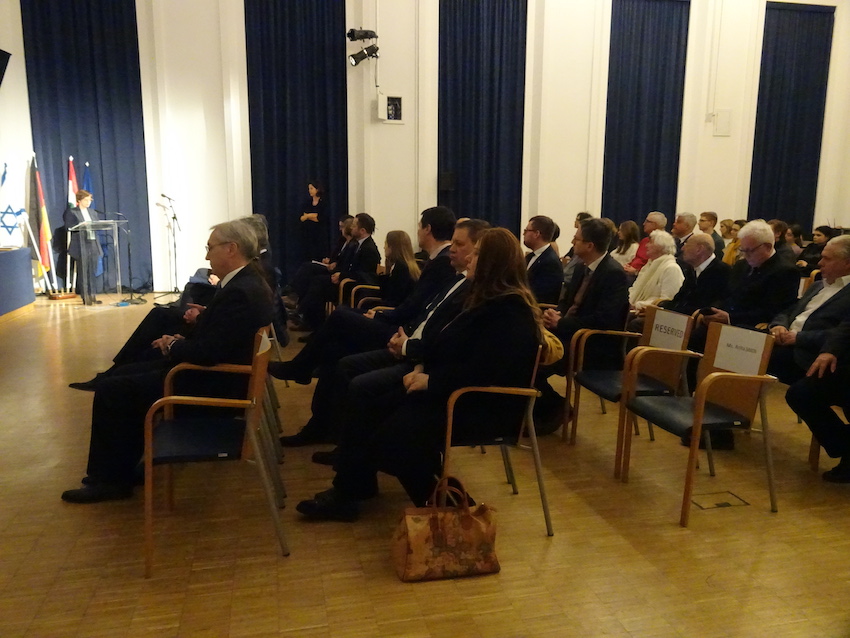
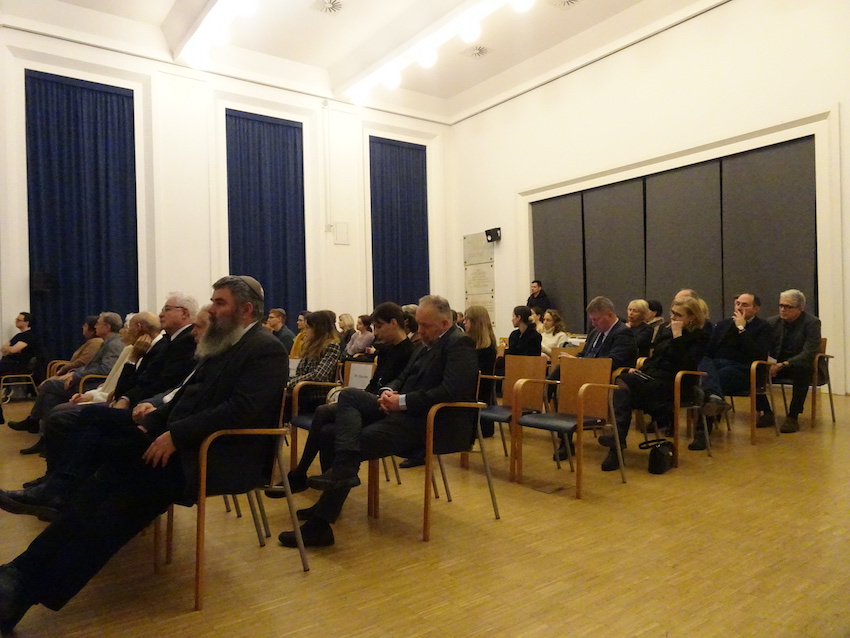
It was followed by the other protagonist of the event H.E. Mr. Yacov Hadas-Handelsmann, Ambassador of the State of Israel, who took the floor and delivered his speech:

“Ladies & Gentlemen,
The word ‘trauma’ comes from the Greek word meaning ‘wound’. They say ‘time heals all wounds’, maybe, but the wounds of the Holocaust will never fully heal. Trauma is the persistent presence of malaise that remains even after the threat has passed.
We gather here this evening to commemorate International Holocaust Remembrance Day and pay our respects to the 6 million Jews who lost their lives during the horrific events of the Holocaust. This day serves as a reminder of the horrors, and as a reminder of the importance of speaking out against hate and intolerance, and working together towards a future where individuals are treated with dignity, respect and are free from anti-Semitism and any other forms of discrimination.”
“It has been now 78 years since Nazi Europe was liberated. Although World War II officially ended on 8th May 1945, it did not mean the end of the trauma that lived on within the Holocaust survivors and for the Jewish people as a whole, as well as for others affected by it. The trauma simply did not end. For us, the tragedy continued and even intensified. A considerable number, if not the majority, of Holocaust survivors have not been able to return to their previous ordinary lives no matter how hard they tried. And it was only decades after the war that researchers found that Holocaust trauma was not limited to the survivors themselves, but was also passed on to the next generations born after the Holocaust and raised in its shadow, and even to the generation after. This type of trauma is called transgenerational trauma transmission, which is not about the physical injury, but mainly about the injury to the soul and spirit of the people. The Holocaust is considered ‘mass trauma’.
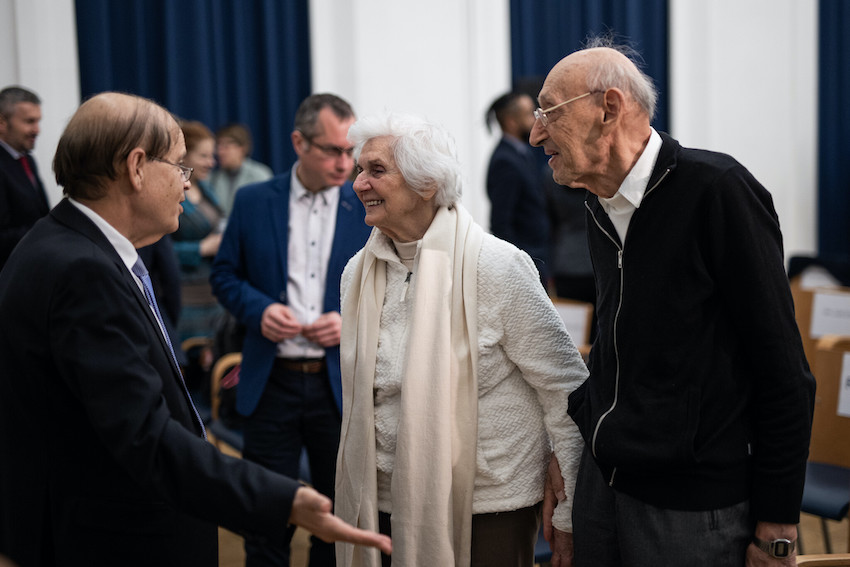

It is interesting to note that in the months following the liberation, thousands of Jewish weddings took place all over Europe. These post-war marriages were probably motivated by the survivors’ need to escape the feelings of loneliness and regain the kind of lives they had prior to the war by building new families and having children. For many, these children would not be perceived as separate individuals, but rather symbols of everything the survivors had lost in the Holocaust.”
“Apparently, however, trauma is not something you can snap out of and for many it is something you carry with you for the rest of your life; ultimately it becomes part of who you are. Many survivors describe living in a kind of continuous gray cloud and never being able to see a ray of sunshine. Why did Holocaust survivors feel this way? There were a number of reasons such as: feelings of guilt, shame, inadequacy, loss of identity, resentment, and the overall psychological pain of the Holocaust continued to haunt survivors. Moreover, they had to face ignorance, disbelief, lack of sensitivity, and the inability of other people to understand and sympathize with their pain. The disbelief was not due to the lack of respect, but because the human mind simply could not grasp the magnitude of the cruelty. Some survivors had constant nightmares and their children would hear them screaming and shouting out unfamiliar names, sometimes finding out later that those were the names of their uncles or aunts, brothers or sister, they never got the chance to meet.


One of the key witnesses in the Eichmann trial describes the Holocaust as being geographically on a ‘different planet’. Israeli author David Grossman, in one of his early books, describes a story about a son of a wealthy shoe store owner in Jerusalem. There was a strange custom in this family of keeping worn out shoes and storing them in a big sack in the basement. The son kept pestering his father about it, since the family store had plenty of shoes, but his father refused to elaborate. One day, in the heat of a debate between father and son, the father said: Someone who had to walk 1,000 km barefoot on snow and ice on one of the death marches during the Holocaust will never, ever have the heart to throw out any worn-out shoe. This subject was never discussed again. Now this is real trauma.

Another true story is about a Holocaust survivor named Miki Goldman, born in Poland. Goldman was 13 years old when he received a punishment of 80 lashes while imprisoned in the ghetto. This was considered as a certain death, making it nearly impossible to survive. Despite this inhuman physical torture, young Goldman managed to survive it all, and ended up immigrating to Israel. When he told his Israeli friends about the terrible experiences he had gone through, nobody believed him, especially the fact that he had survived the 80 lashes. Even worse, they thought he made up the entire story. Goldman later claimed that being held for a liar was now his 81st lash, although psychological, it was far more painful and agonizing than the 80 lashes he got overall.
Several decades ago, making a family tree in Israel became a trend. More and more children started asking their parents and relatives to make one in order to learn more about their past. This act inevitably confronted them with the past. It helped their children, grandchildren, and great-grandchildren to learn about, reflect on, and more importantly, begin researching the past. The phenomenon we are living through is that the more time has passed since the horrific period of the Holocaust, the more interest you see from people from all walks of life. This interest comes not only from Jewish people, but also from all backgrounds. After the war ended, with the liberation of the concentration camps, most of those who managed to survive this hell on earth immigrated to another country; a large portion emigrate to the United States or Israel. Many of the surviving Jews found it too difficult to rebuild their lives in the towns and villages they once lived in, because Europe had become the ‘graveyard of their people’. For this reason, the survivors tried building a new life for themselves while still being in a state of physical and mental devastation.
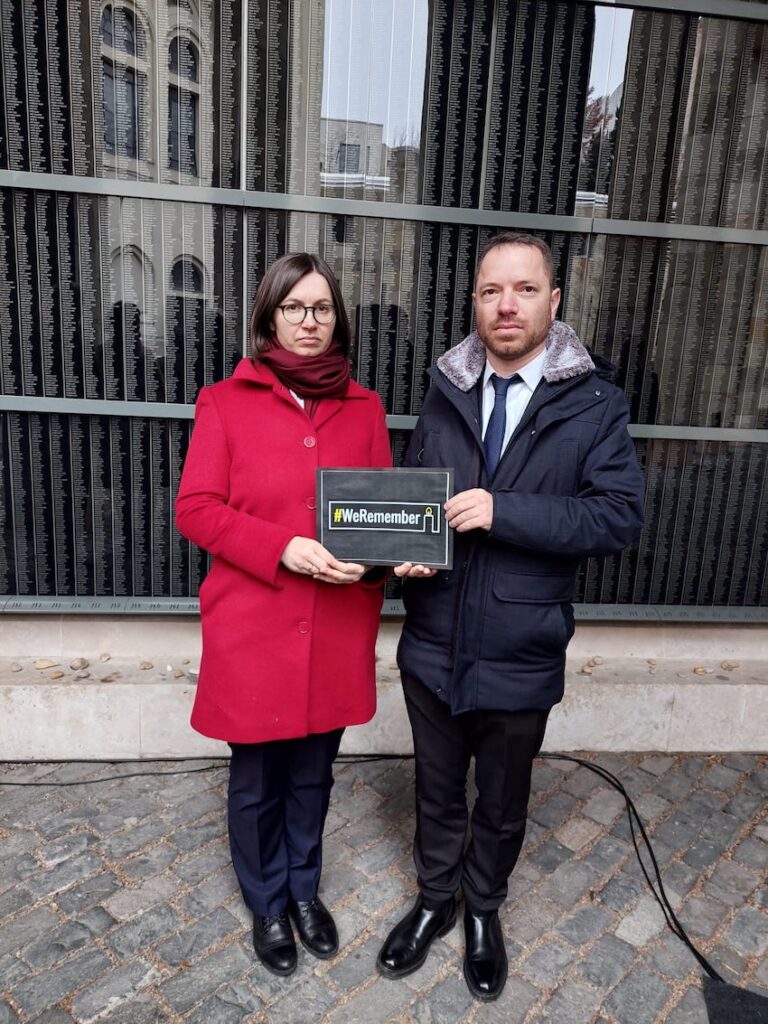
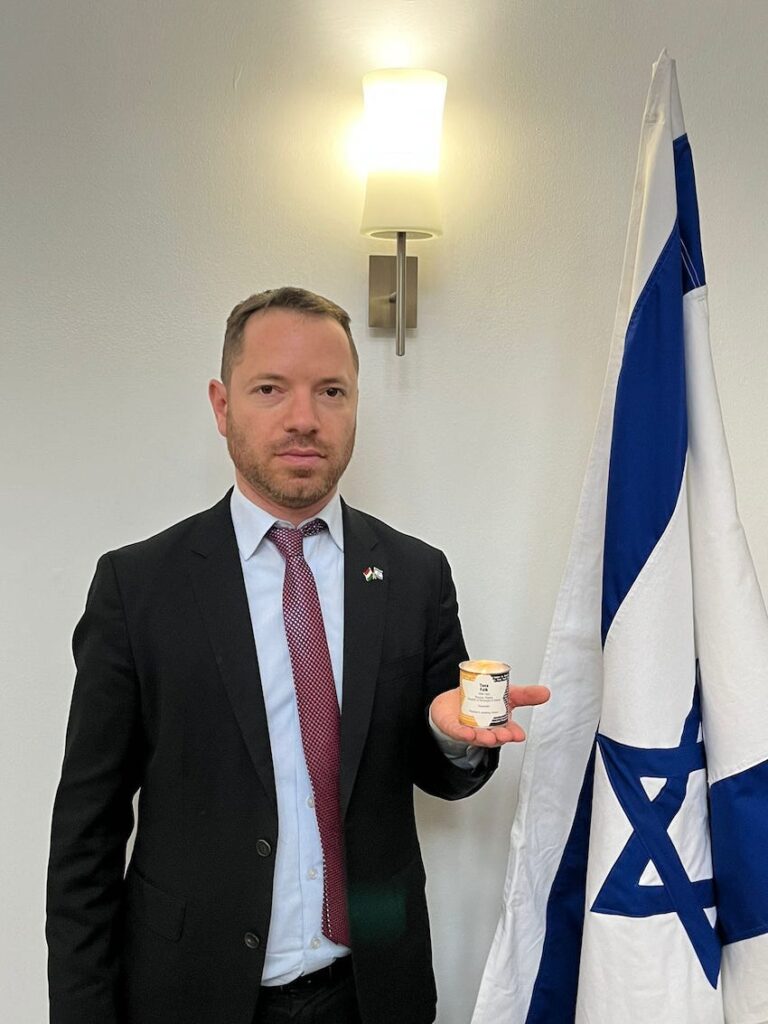
Coping psychologically with post-war stress, many child survivors deliberately broke off any feelings they might have had, and focused only on their future. In this way, many child survivors continued to ignore the past while working hard to establish a secure future. Sometimes trauma turns into something meaningful. Many became financially successful, married, and became devoted parents. Many also belonged to the helping professions, and were otherwise worthwhile and even altruistic members of their communities. No matter how successful they were, the Holocaust trauma was always within them.
The story of Holocaust suffering continues as Europe’s unhealed wound. These dark pages of our people’s history will never close. Although the wound still exists, it remains a powerful reminder to future generations never, ever to forget. Please enjoy the film which, as expected, deals with the topic of trauma.”
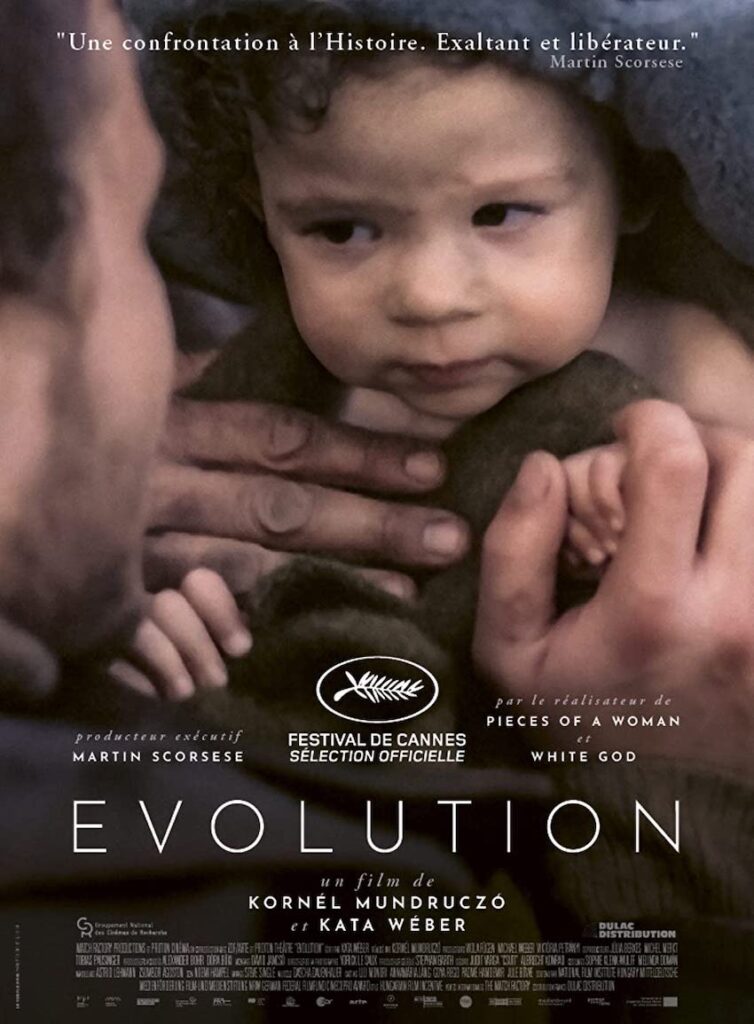
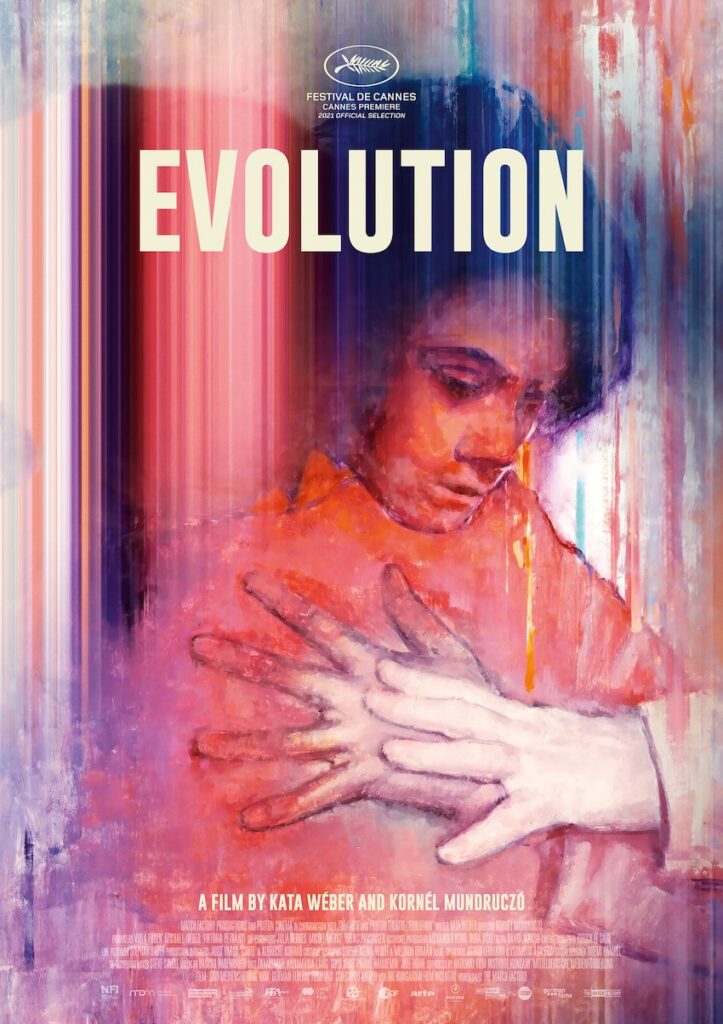
“EVOLUTION”
This is a German-Hungarian film, the latest work of the acclaimed filmmaking team Kornél Mundruczó – director and Kata Wéber – playwright, (creators of Pieces of a Women 2020). In 2021 they returned with a powerful drama tracing three generations of a family, from a surreal memory of World War II to modern-day Berlin, unable to process their past in a society still coping with the wounds of its history.
The pain and stigma that trickles from Eva to Lena and then to Jonas is inexpressible. The relationships between the three generations are interwoven with the historical traumas of the 20th century, while they all desire to embark on the path of healing.
Evolution, made with Martin Scorsese as executive producer, debuted at the 74th Cannes International Film Festival in 2021 with great critical success. Kornél Mundruczó appeared in the festival’s official program for the seventh time. This time in the newly created Premiere section, which hosts the innovative works of creators returning to Cannes.
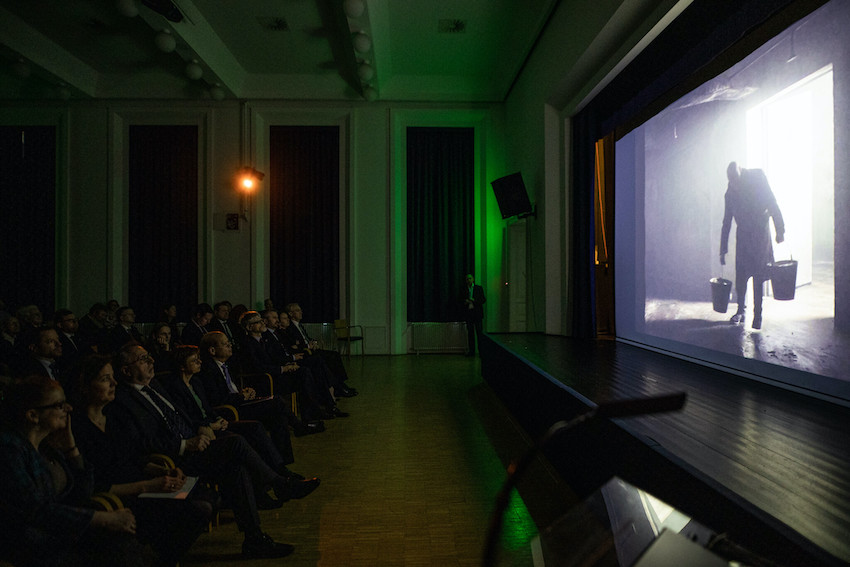
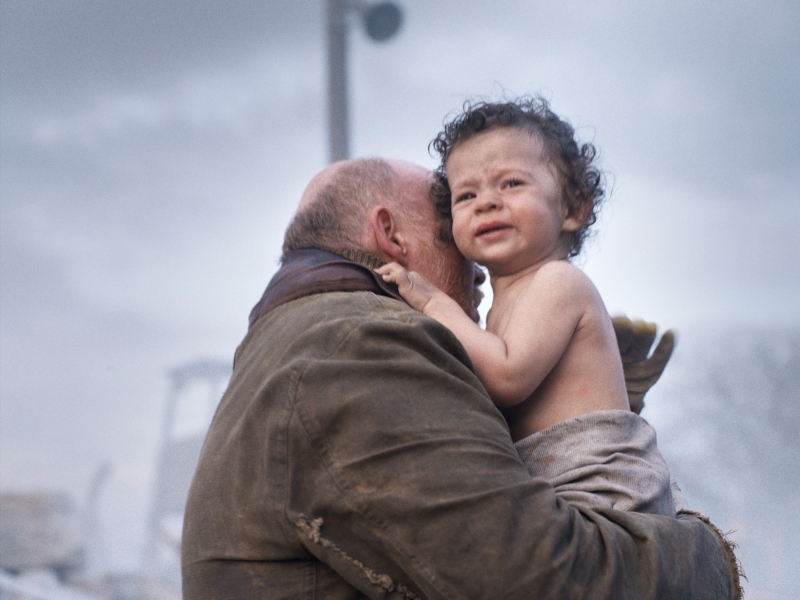
After the film screening, psychologist Dr Ágnes Györfy PhD gave a short lecture with presentation on Transgenerational Trauma Transmission, to which the audience listened with great interest.
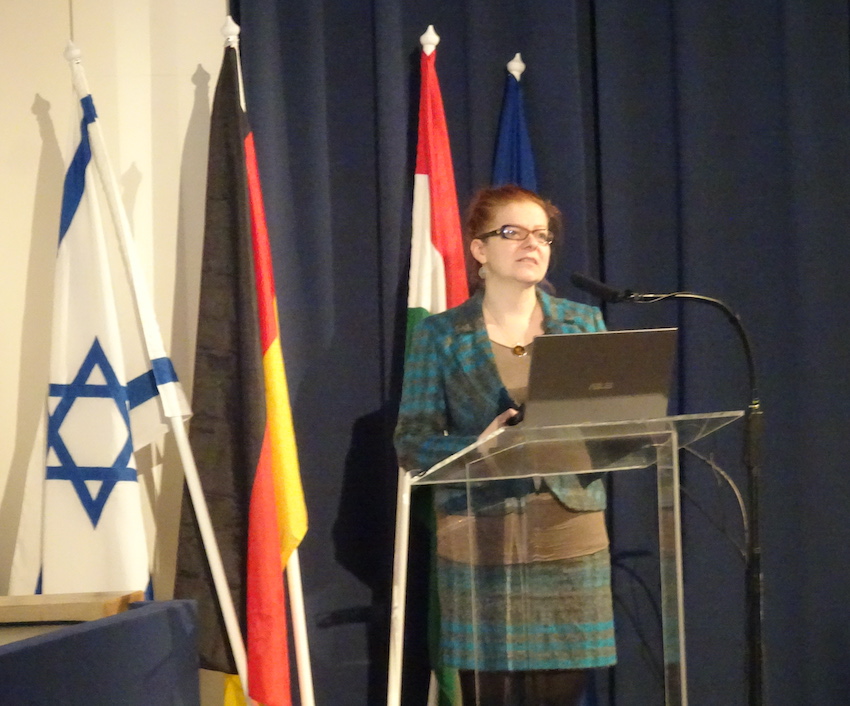
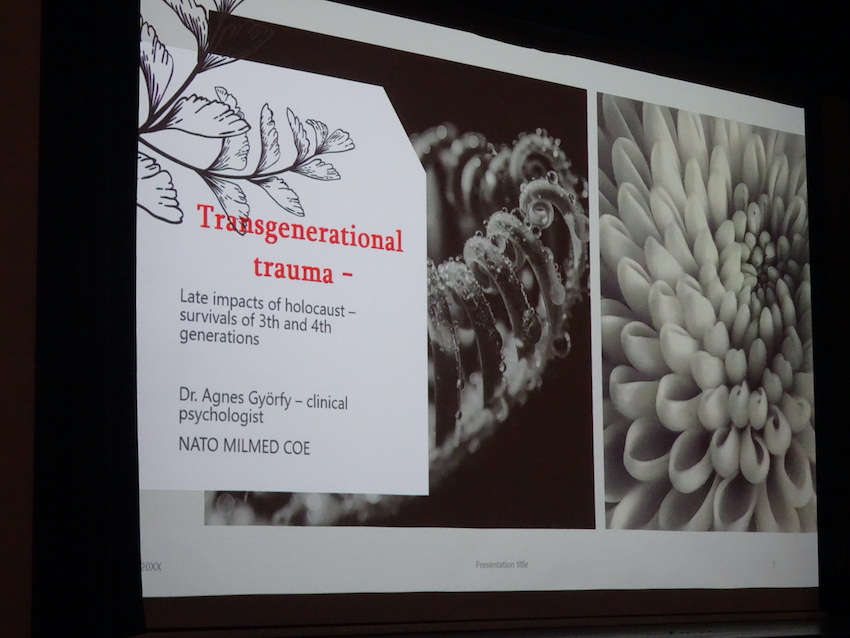

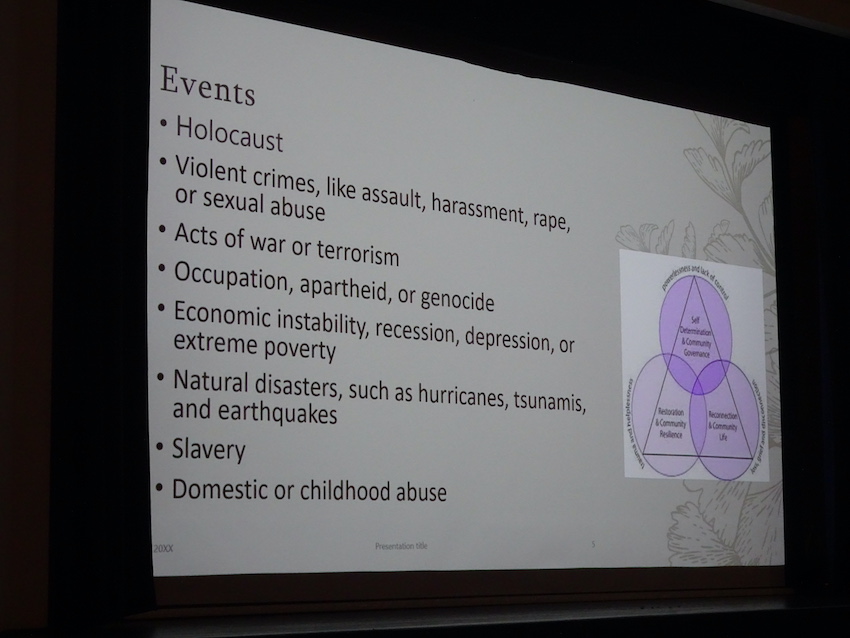
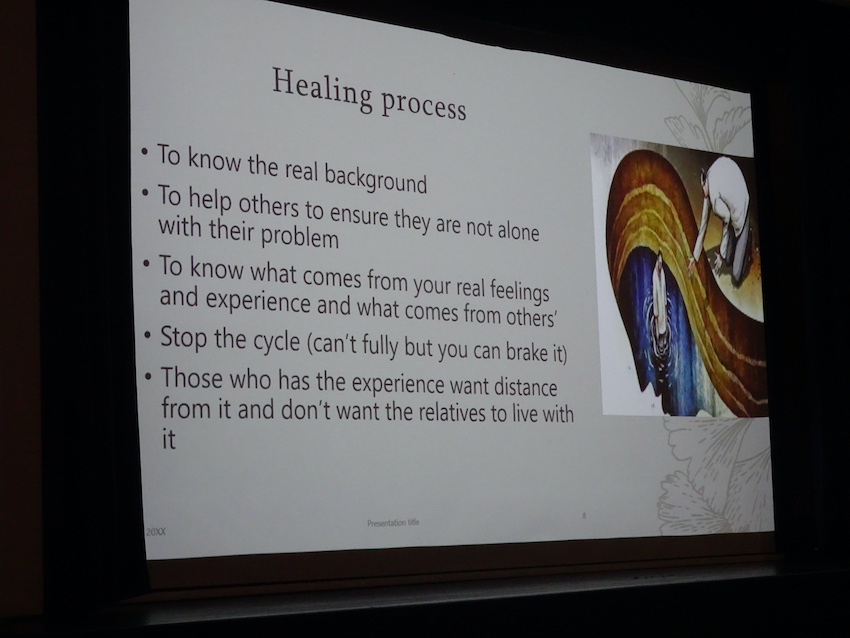
History of the Goldmark Hall:
the Old-New Jewish Cultural Centre
After the first Anti-Jewish law in Hungary in 1938, many Jewish actors were banned to take the stage. Lajos Bálint, playwright of the Hungarian Theatre suggested that just like in Berlin, a permanent Jewish theatre should be established. Lawyer Géza Ribáry, a member of the Jewish community undertook the founding of the ‘Island of the Exiles’. The theatre in the Goldmark Hall, named after the great Hungarian Jewish composer Károly Goldmark (1830-1915), situated in the Jewish Quarter in Pest, opened its doors on 11 November 1939. Not only the artists were thrown off the stages, but the Jewish audience couldn’t visit the theatres, cinemas, concerts and they could only meet the Hungarian and universal culture at Goldmark Hall, so they played to full houses every night. The repertoire included classics from Shakespeare to Ibsen. In addition, contemporary plays by banned Jewish authors were also performed. Thanks to this highly successful initiative by OMIKE, until 19 March 1944 (date of the Nazi occupation of Hungary) 550 actors, singers, musicians, dancers, painters, sculptors and writers had access to opportunities and enjoy life-giving air. The building with the Goldmark Hall can be found in the Raul Wallenberg Memorial Garden near the Grand Synagogue.
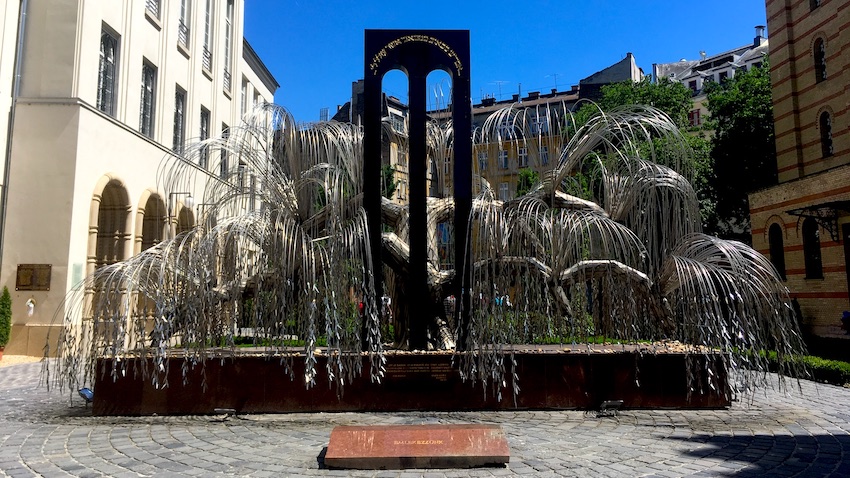
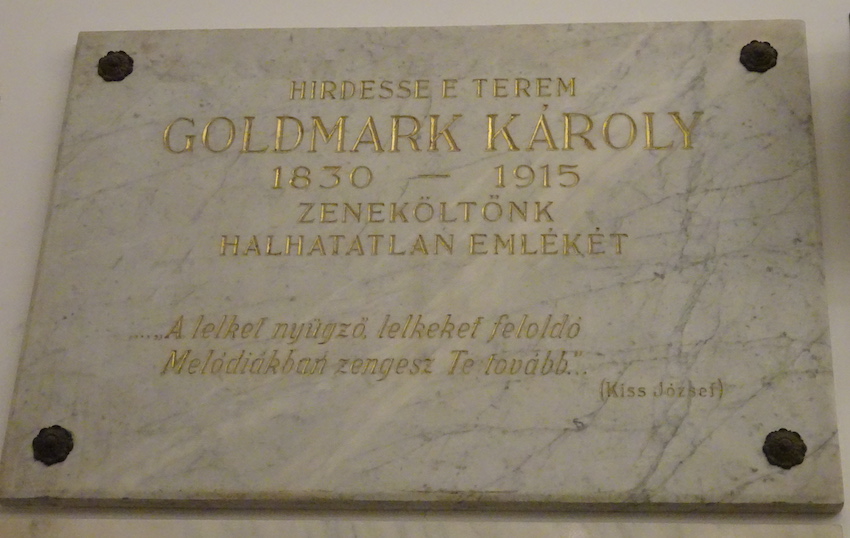
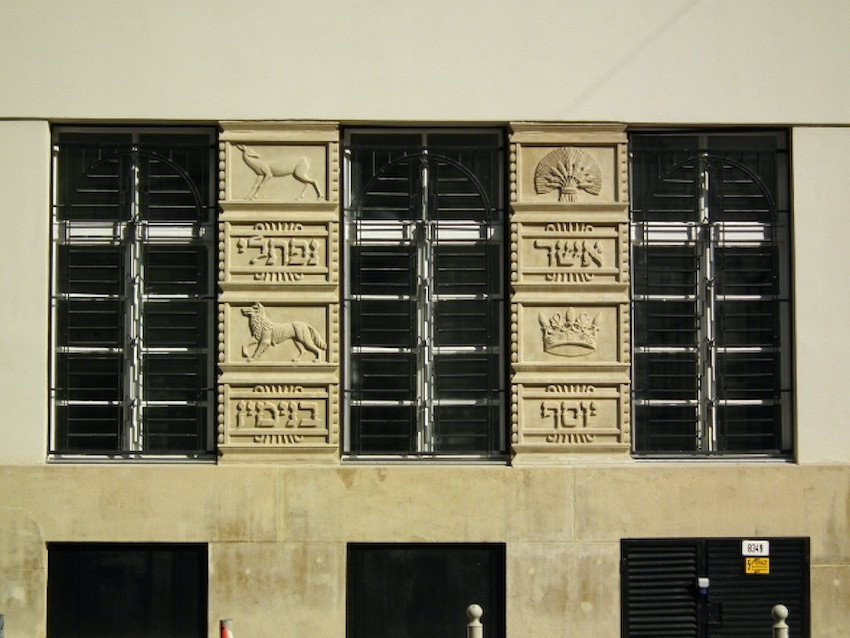

Sources:
Embassy of Germany in Budapest,
Embassy of Israel in Budapest,
MAZSIHISZ


